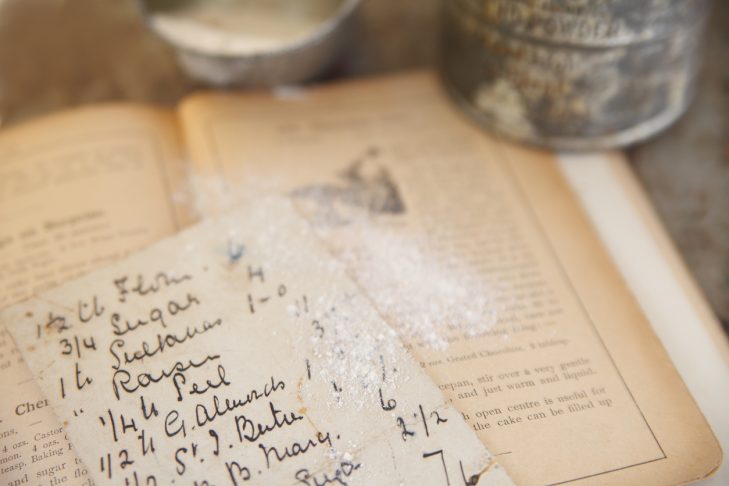My mother has always told me to make notations in my cookbooks of amounts, cooking times and other adjustments, or simply to put an “X” next to a recipe if I do not deem it sufficiently tasty to make again. I am not good about doing this, usually writing my revisions on a sticky note instead, if at all. As a serious student and food lover, something feels sacrilegious about marking up these books, but I also like improvising in the kitchen, which does not lend itself well to careful recipe notation.
I have my grandmother’s copy of “Second Helpings, Please!” (the 1968 B’nai Brith Montreal cookbook so iconic for Jewish women of a certain generation that even my Israeli mother-in-law has one), complete with splatters and napkin bookmarks that must date back at least to the ’90s. I keep these bookmarks in their exact places, as if they will one day reveal to me some deep mysteries from within, like a hidden portal in a video game. What was my grandmother trying to say with these napkins? What secrets will she still teach me if I just look a little bit closer and connect the dots?
Even as an avid cook myself, I already feel that I need my mother to write me a guide just so I can have it for the future. It will be “Mom’s Compendium of Siegel Family Holiday Favorites,” a vast index that will be searchable in multiple ways: by holiday, ingredient and course of the meal. With each of us possessing cookbook collections that occupy several shelves, I already have to go on a hunt through indices before I can relocate the source of a particular previous culinary success.
Thankfully, my mother has taken the time to record and distribute some of the recipes beloved by my family, and she is also quite good at dictating her own somewhat freeform, previously unwritten recipes, a skill I have learned not to take for granted as the self-designated food historian for my husband’s family, as well. That is where I struggle the most: Hardly any of my husband’s maternal grandmother’s recipes are in writing; there is somewhat of a language barrier in trying to record them myself; some of these dishes were completely unfamiliar to me prior to meeting her, as they come from an Eastern European heritage different from my own; and there are variations in the availability and quality of certain ingredients from Israel, where she lives, to the U.S. These delicious and unique favorites are well worth the extra effort of preserving, however. As a Holocaust survivor whose parents didn’t survive, she already recreated these recipes from her own childhood memories, and I take the responsibility of not losing them for a second time very seriously.

Another challenge comes in the form of my desire to modernize and lighten up some of these Old World classics. Respectfully adapting these Eastern European Jewish mainstays to modern sensibilities without losing the essence of the originals is an ongoing endeavor. Sometimes I fear that, in my eagerness to experiment, I have gotten so far from the original that it may lose its familiarity entirely and, thus, become disconnected from its familial recipe status.
In the digital age, I wonder what family food legacy we will leave for our children. When it comes time for my daughter to ask me for our family recipes or other recipes she loves, what am I going to do, give her my username and password for various cooking websites, where I have saved countless recipes, many of which I have never even prepared, to virtual recipe boxes? How will she separate the good from the bad and know which were her favorites, if these recipes even remain accessible in cyberspace for perpetuity? I think it’s time I start marking up my cookbooks and printing out online recipes we really love, intentionally crafting a hard-copy food legacy for my family. You know what they say: Always listen to your mother.
This post has been contributed by a third party. The opinions, facts and any media content are presented solely by the author, and JewishBoston assumes no responsibility for them. Want to add your voice to the conversation? Publish your own post here. MORE



